THE NEW YORK TIMES: Is Afghanistan’s most wanted militant now its best hope for change?
For almost two decades, one name above all others inspired fear among ordinary Afghans: Sirajuddin Haqqani. But since the Americans’ withdrawal in 2021, Haqqani has portrayed himself as something else.
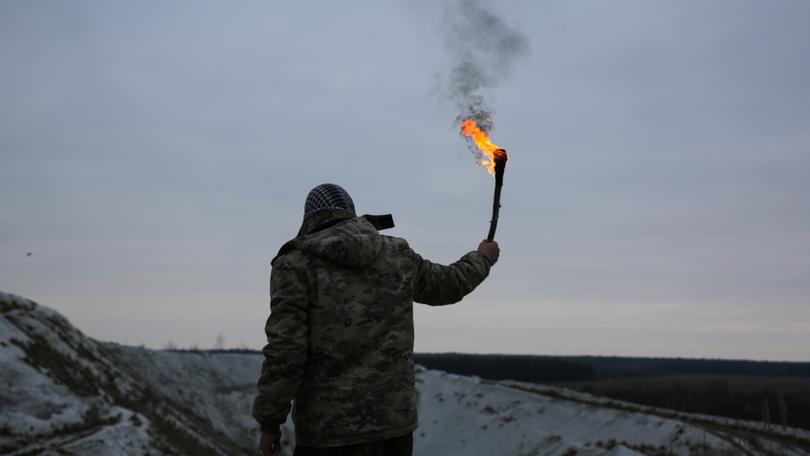
KABUL, Afghanistan — For the better part of two decades, one name above all others inspired fear among ordinary Afghans: Sirajuddin Haqqani.
To many, Haqqani was a boogeyman, an angel of death with the power to determine who would live and who would die during the U.S.-led war. He deployed his ranks of Taliban suicide bombers, who rained carnage on American troops and Afghan civilians alike. A ghostlike kingpin of global jihad, with deep ties to al-Qaida and other terrorist networks, he topped the United States’ most-wanted list in Afghanistan, with a $10 million bounty on his head.
But since the Americans’ frantic withdrawal in 2021 and the Taliban’s return to power, Haqqani has portrayed himself as something else altogether: A pragmatic statesman. A reliable diplomat. And a voice of relative moderation in a government steeped in religious extremism.
Sign up to The Nightly's newsletters.
Get the first look at the digital newspaper, curated daily stories and breaking headlines delivered to your inbox.
By continuing you agree to our Terms and Privacy Policy.Haqqani’s makeover is part of a larger conflict that has roiled the Taliban over the past three years, even as the group works to present a united front. At the centre is the Taliban’s emir and head of state, Sheikh Haibatullah Akhundzada, a hard-line cleric whose evisceration of women’s rights has isolated Afghanistan on the global stage.
As Akhundzada has seized near total control over major policy, Haqqani has emerged as his most persistent challenger. Haqqani has privately lobbied for girls to be allowed to return to school beyond the sixth grade and for women to resume work in government offices, according to several Taliban and foreign officials. And as Akhundzada has denounced Western ideals and dismissed Western demands, Haqqani has offered himself as a bridge.
He has gone on diplomatic tours and conducted back-channel conversations to espouse his more palatable vision and promote shared interests, like keeping terrorist groups on Afghan soil at bay. He has built relationships with some former enemies in Europe, as well as with Islamic countries, Russia and China, foreign officials said.
“Twenty years of fighting jihad led us to victory,” Haqqani told me this year in an interview in Kabul, his second ever with a Western journalist. “Now we have opened a new chapter of positive engagement with the world, and we have closed the chapter of violence and war.”
Many Western diplomats have been shocked by Haqqani’s transformation — and wonder if it can be believed. Haqqani is an enigma, at once a power-hungry political operator and a blood-soaked sworn jihadi; even the exact date and place of his birth are unclear. Promising the restoration of women’s rights may be less about personal reform and more a calculation to bring Western countries to his side as he challenges Akhundzada.
Haqqani and his family have a long — and once secret — history of just that kind of outreach: At several points during the U.S.-led war in Afghanistan, the Haqqanis sought rapprochement with the United States, a New York Times investigation revealed. But American officials mostly rebuffed the Haqqanis, viewing them as irredeemable and untrustworthy in light of the mass death they had wrought during the war.
Some diplomats now say that the Haqqanis’ bids for dialogue were missed opportunities, ones that illuminate how the American war on terrorism created the very enemies it sought to destroy — and help explain why the United States’ war in Afghanistan carried on for 20 years.
To continue to reject engagement with Haqqani may be to replay those missteps, some American officials and experts say. Faced with few alternatives, some see Haqqani as a potential force for change that could one day redefine life under Taliban rule and the country’s relations with the world.
The Insurgent
Around 10 one night this year, I sat down with Haqqani in a two-story mansion just outside Kabul’s old fortified Green Zone. A stout man in his 40s with a coarse black beard, he has the grizzled look of an insurgent-turned-statesman.
Over three hours, Haqqani spoke about once-unknown details of his upbringing, his ruthless calculations against American troops and previously secret interactions between his family and American officials. He also stressed his ambition for Afghanistan: finally ridding it of violence and war.
It’s a tantalizing — if hard to imagine — vision for a country that has been plagued by nearly half a dozen coups, a civil war and invasions by two superpowers within the past century.
It also came from a surprising messenger: a man responsible for hundreds, if not thousands, of deaths during the U.S.-led war in Afghanistan.
Born around the time of the Soviet invasion of Afghanistan in 1979, Haqqani grew up in Miran Shah, a beige-earth, mud-brick enclave of Afghan refugees just over the border in Pakistan. His father, Jalaluddin Haqqani, was a prominent commander of the mujahedeen — the Afghan insurgents fighting a holy war against Soviet forces — who forged relationships with powerful sponsors across South Asia and the Persian Gulf.
During the war against the Soviets, Jalaluddin Haqqani cultivated patrons among the Pakistani and Saudi intelligence agencies. He fostered close ties with the CIA, which sent him hundreds of thousands of dollars in cash and weapons. He also grew close to Osama bin Laden, who would go on to establish al-Qaida with the Haqqanis’ support.
All the while, Haqqani was grooming his son Sirajuddin to take over the sprawling jihadi network he was creating, sustained by a hugely lucrative criminal empire of drugs, kidnapping and extortion that spanned the Arab world. Even when Sirajuddin was a child, neighbours and relatives called him “khalifa,” a title in Islam that refers to a successor or leader.
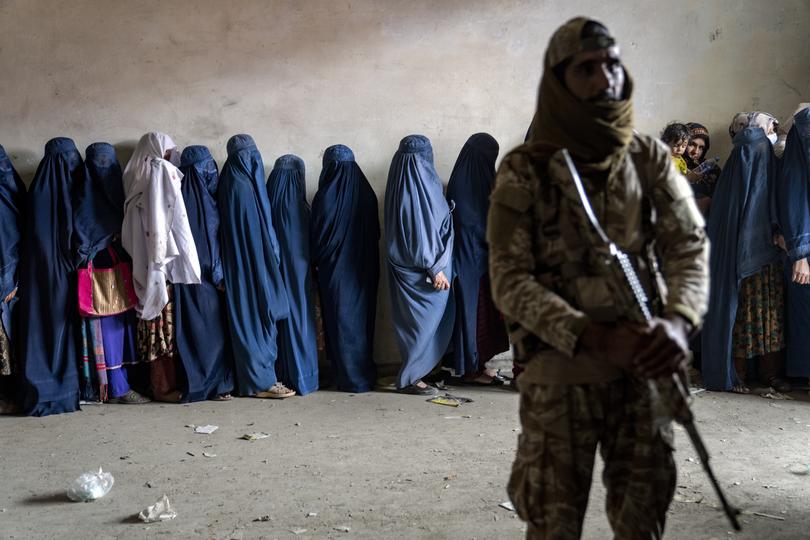
The younger Haqqani said his earliest memories were of travelling to mujahedeen training camps in eastern Afghanistan to visit his father. The camps buzzed with the whistle of mortars from nearby fighting and stank of the sweat from mujahedeen fighters coming off the battlefield, Haqqani recalled.
When his father could not leave the battlefield, he and his brothers climbed atop nearby mountains and watched the fighting. “We said to ourselves that our father and uncles are down there, busy in the battle,” he recalled.
Haqqani and his brothers spent the rest of their childhood studying in a local madrassa, then with private tutors, their father hired to teach them about global politics as well as religious texts. That gave Haqqani exposure to the outside world that was rare for a future Taliban leader.
When the United States invaded Afghanistan in 2001, Haqqani, then in his early 20s, was sitting in the madrassa his family ran in Khost province, in the southeast. The news arrived through crackling static over an old mujahedeen radio: American missiles were raining down across Kabul.
A jolt of adrenaline shot through the room. “We were young and full of energy. We were physically and mentally prepared” to fight, he recalled.
While the Taliban regime fell quickly, by the summer of 2006 the movement had regrouped and roared back as an insurgency. By then, Haqqani was leading guerrilla operations in the east, before eventually being charged with overseeing Taliban military strategy nationwide as a deputy to the emir.
The fighters under his direct command grew into one of the most resilient and capable arms of the Taliban insurgency. Haqqani embraced suicide attacks in a way that few had before him, creating a high-ranking battalion that prospective bombers flocked to join, former militants told me.
Haqqani fighters carried out the war’s deadliest suicide attacks, including one in 2017 that killed more than 150 people, mostly civilians, with a single truck bomb. In 2011, they launched a 19-hour-long assault on the U.S. Embassy in Kabul. The last known American soldier to be held hostage in Afghanistan, Bowe Bergdahl, was in the Haqqanis’ hands for years after his capture in 2009.
The headline-grabbing attacks prompted the United States to designate the Haqqani network a foreign terrorist organization in 2012 — the only arm of the Taliban to be classified that way.
American forces hunted Haqqani, to no avail — a point in which he takes great pride. He told of changing locations sometimes 10 times a night and never using the same cars or bodyguards twice to outsmart American forces.
“I ask you to ask our enemies how they could not kill me or arrest me with all the equipment they had,” he said, sitting in a beige leather armchair under fluorescent lights.
He described the happiness he felt after learning that American officials had put him on their blacklist. It was proof, he said, that his battlefield efforts had been “very effective” against the United States.
The Politician
When speaking about the war, Haqqani appeared at ease, a glint of nostalgia in his eyes. But when the interview turned to the Taliban’s internal politics and foreign policy, he was more calculated — after each question, he would pause, flip through a stack of talking points and then respond.
That caution betrays the Taliban’s delicate power dynamics and Haqqani’s uneasy place within them. While the movement has prioritized unity out of fear that any splintering could send the country back into war, a struggle has unfolded out of public view, pitting more pragmatic figures like Haqqani against the ultraconservative emir, Akhundzada.
Within months of the Taliban’s takeover three years ago, Akhundzada laid down an iron fist, establishing himself as the lone decision-maker on all significant policies and government appointments.
In the spring of 2022, he reneged on a public promise made by other Taliban officials to allow girls to attend high school. He has gone on to cement the world’s harshest strictures on women and girls, measures that a majority of influential Taliban leaders disagree with, according to experts and officials.
Haqqani and other pragmatists made personal appeals to the emir to ease the most restrictive policies. Then, to signal their protest, he and some of his allies refused to attend meetings in Kandahar, Akhundzada’s conservative southern stronghold, according to experts and foreign officials with knowledge of the efforts.
In a speech last year, Haqqani said the Taliban’s leadership was “monopolizing power” and “hurting the reputation” of the government — comments that many observers viewed as veiled criticism of the emir. Haqqani’s aides denied that characterization, saying that he was expressing a general desire for his government to establish a good relationship with its citizens.
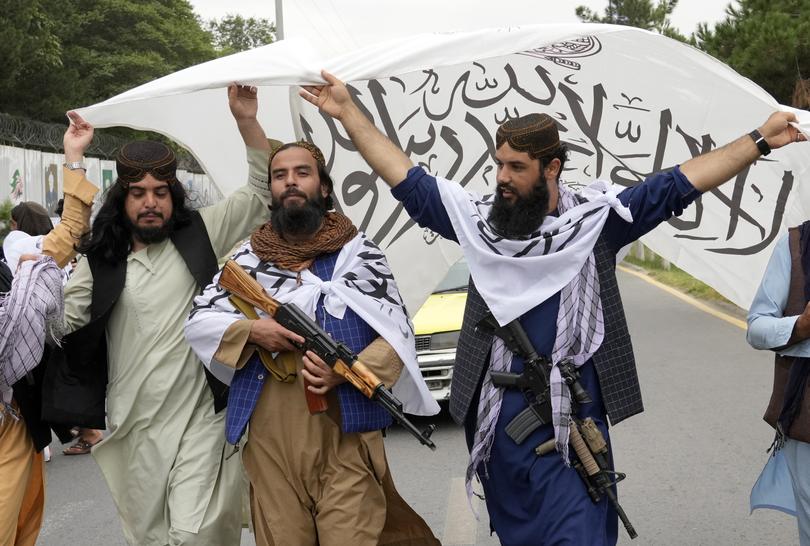
The public objections seemed to violate the Taliban’s central code: total loyalty to the supreme leader.
And Akhundzada responded with the full weight of his authority.
He reassigned the battalions of fighters loyal to the dissenting Taliban officials to his base in Kandahar and established his own private protection force. He replaced pragmatists in key government positions with his allies. He also, some analysts say, deliberately tried to undercut Haqqani’s overtures to the West by further restricting women’s rights.
The clampdown largely worked. “Many of those who tried to resist the emir now seem to be thinking that it’s not doable,” said Antonio Giustozzi, a leading scholar of the Taliban.
In the interview, Haqqani denied any rift in the government, saying the Taliban leadership had secured a major achievement by creating an “independent government with a single law and a single leader.”
But diplomats and analysts say he remains among the few still challenging the dominance of Akhundzada, who less than a decade ago came to public prominence as a deputy, along with Haqqani, to the movement’s emir at the time.
Now, with most of his allies inside the Taliban cowed into silence, Haqqani has increasingly turned outside the country to help tip the power contest in his favour.
The Diplomat
Haqqani has sold his efforts to establish ties with other countries — currently, no other nation officially recognizes the Taliban government — as part of his vision for its leaders to be players on the international stage.
He has built strong working relationships with U.N. officials and European countries, foreign officials told me. He has signalled a green light for Chinese investment and developed close ties to Russia.
In pitching himself as a reliable, practical partner, he has tried to shake the almost mythological lore around him as a terrorist mastermind and sworn enemy of the United States — a reputation forged over 20 years of war.
But he is walking a fine line, trying to cultivate ties with the world — including the West — while not offering fodder to conservative Taliban clerics who view relationships with Western countries as a betrayal of Islamic values and, potentially, Afghan sovereignty.
The United States has largely rebuffed efforts by Taliban officials to establish any formal ties with their administration, drawing a red line over women’s rights. But the United States still holds enormous sway. It is the largest donor of foreign aid to the country, its sanctions help dictate the flow of badly needed cash and humanitarian assistance, and it effectively controls billions in frozen assets belonging to Afghanistan’s central bank.
While his influence over restrictions on women is limited, Haqqani has tried in back-channel conversations with Western diplomats to leverage an issue where he does have influence: global terrorism.
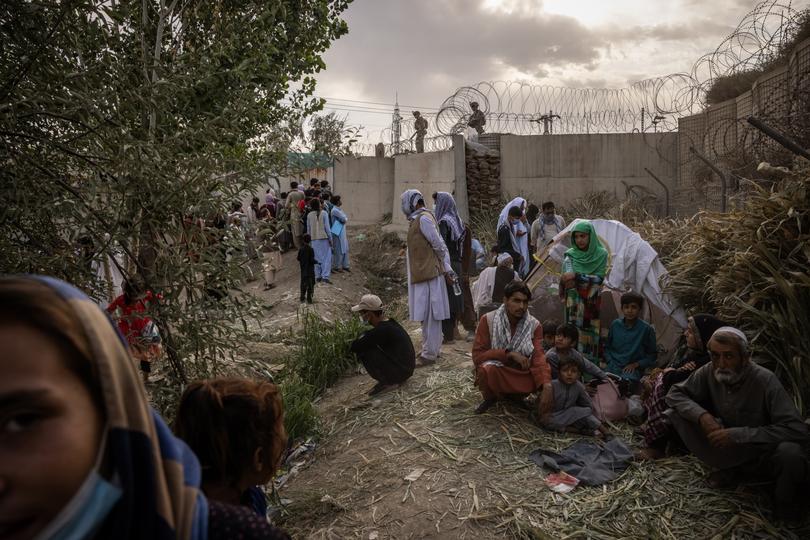
The Haqqanis have pledged to contain the threat not just from the Islamic State group, which has been carrying out attacks across Afghanistan, but also from al-Qaida, with which the Haqqani network still maintains close ties, officials with knowledge of the discussions told me.
Some Western diplomats have questioned whether terrorism emanating from Afghanistan is truly a global threat, potentially reducing the incentive to deal with Haqqani.
For others, distrust still hangs in the air, especially after the Haqqanis were found to be sheltering the head of al-Qaida, Ayman al-Zawahri, in a Kabul safe house when he was killed in a U.S. airstrike in 2022. Pakistani officials have also accused the Haqqanis of providing safe haven to the Pakistani Taliban, a militant group and ideological ally of the Afghan Taliban that has roared back in Pakistan since the Afghan Taliban regained power.
“They are tactically very astute,” the Pakistani ambassador to the United Nations, Munir Akram, told me, referring to the Taliban in Afghanistan. Their relationship with militants is both about ideology and a strategy to “secure greater leverage over neighbouring countries.”
In my conversation with Haqqani, he insisted that no terrorist groups were present in Afghanistan, saying that “the Islamic Emirate controls every corner of the country.” A more nuanced reading of the security environment under the Taliban might be that, while terrorist groups have a presence in Afghanistan, the fact that they have not attacked targets in the West over the past three years is a sign of Haqqani’s intent to engage internationally.
The question is what he might get in return.
“It’s a dangerous idea, working with the Haqqanis,” said Hans-Jakob Schindler, a former coordinator of the United Nations’ monitoring group on the Islamic State group, al-Qaida and the Taliban. “You don’t know what side the Haqqanis will be standing on on the day you deal with them — your side or their own or the side of international terrorists.”
The Negotiator
For the United States, the distrust of Haqqani is etched in blood. But the Haqqanis’ reputation among American officials as radical ideologues and avowed enemies may be one of the many misconceptions that helped keep the United States in Afghanistan for two decades.
“The U.S. was never central to their ideology like it was to Osama bin Laden’s,” said Barnett Rubin, a former U.N. and U.S. diplomat in Afghanistan. “We thought that because they are fighting the U.S. they are anti-American, but in their view, they are fighting invaders because they are anti-invader.”
Even during the war, the Haqqanis showed an openness to engagement with the United States that was broader than previously publicly known. For years, the family was involved in secret discussions with American officials seeking a détente, according to former officials and others with knowledge of the interactions.
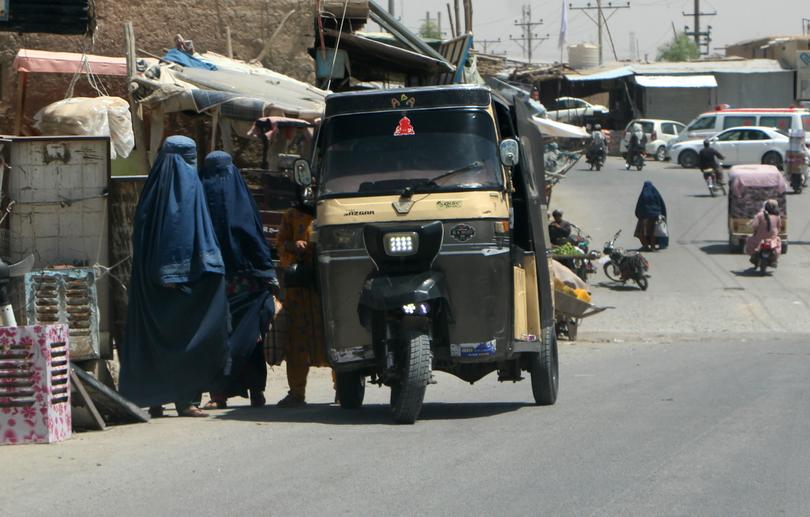
Those efforts began in the early days of the American invasion. Rattled by the American bombing campaign, the elder Haqqani dispatched a convoy of dozens of relatives and allies to Kabul to show support for the U.S.-backed Hamid Karzai as president at his inauguration, according to former American and Afghan officials. An American airstrike hit the vehicles before they could reach the city, according to former Western officials.
Soon after, Haqqani’s father dispatched his brother Ibrahim Omari to Kabul in another attempt to engage with the Americans. U.S. forces arrested him, according to Taliban and former Western officials.
“The Americans didn’t listen to us, and they forced their decision of war on us,” Sirajuddin Haqqani told me. “We wanted talks, negotiations and reconciliation — but everything went the other way.”
In 2004, the Haqqanis approached Karzai again in an attempt to reconcile, only to have the request effectively ignored. “There was a chance to stop the Haqqanis from becoming terrorists, but that’s when we ignored them,” said Umer Daudzai, who served as Karzai’s chief of staff at the time.
At the height of the war in 2010, the Haqqanis were still secretly seeking rapprochement. They exchanged letters unofficially with American officials proposing ways of easing hostilities and asked through other back channels to meet with the Americans, according to two people with knowledge of the interactions.
A year later, Haqqani’s uncle, Omari, met with American officials at a Raffles hotel in Dubai, United Arab Emirates, accompanied by the head of Pakistan’s intelligence agency, a patron of the Haqqanis that had helped broker the discussions, those people said.
Then, around 2015, the Haqqanis sat down with American officials alone for the first time in decades and discussed finding a path to ending the war, according to three people with knowledge of the encounter.
Sitting in a private lounge of an upscale European hotel, Omari told American officials that he had been sent by his family to deliver a message, those people said. Both the Haqqanis and the United States wanted peace in Afghanistan, he said. The Americans had toppled the Taliban government, killed bin Laden and established a democratic Afghan republic. So why, he asked, was the United States still fighting?
In response, Laurel Miller, the State Department’s acting special representative for Afghanistan and Pakistan, admitted that as conflicts drag on, their original rationale often becomes lost and they become self-perpetuating.
“The United States has lost the ability to answer the question for itself,” Miller recalled telling Omari about why the United States remained at war. “Right now, we are in the middle of a process to try and figure it out.”
Looking back now, some former officials told me that the United States, thirsty for revenge after the deadliest attack ever on American soil, seemed to create the very enemies it sought to destroy.
In our conversation, Haqqani was coy about his family’s previous engagement with the West, a history that could complicate his relationship with other groups within the Taliban.
But even if it is the card he is most reluctant to advertise publicly, it may be the best one he has to play with foreign governments sceptical of his outreach now. That once-secret history lends a measure of credence to Haqqani’s recent overtures, some former officials say. Instead of a shocking transformation by Haqqani, his outreach, they suggest, maybe a continuation of what his family has long sought: strategic partnership.
The Future
This summer, a photograph of Haqqani was splashed across social media: He was standing outside the Qasr Al Shati palace in Abu Dhabi, a slight smile on his face and his hand grasping that of the United Arab Emirates’ ruler, Sheikh Mohammed bin Zayed Al Nahyan.
The encounter was Haqqani’s first official meeting with a head of state — and seen by some as a signal that his lonely campaign to build an independent support base was alive and well.
He has spent months this year meeting with elders across northern and western Afghanistan, developing ties away from his stronghold in the east, according to several people who attended. His team has released videos of him that have helped maintain his celebrity following among young Taliban fighters. And he has continued to reach out to Western officials.
While not as outspoken as he once was, Haqqani appears to be “trying to build a political coalition for the long term,” Rubin, the former diplomat, said.
Even sitting down for an interview struck me as part of that political effort. In our conversation, he made his first public statement on women’s education in more than a year, saying that the current situation “does not mean that girls are forever denied from going to schools and receiving an education.”
Such statements seem to reflect his belief that even an authoritarian government needs public support to last. “Unity is important for Afghanistan currently,” Haqqani told me, “so we can have a peaceful country.”
His efforts have begun to pay off. In June, the United Nations temporarily removed Haqqani from its travel blacklist. In addition to going to Abu Dhabi, he travelled to Mecca, Saudi Arabia, to perform the Hajj pilgrimage.
For now, though, the United States is keeping its distance. To insert itself in Afghan politics would be a gamble, one tainted by 20 years of war that cost thousands of lives and billions of dollars — only to end with the Taliban’s return.
This article originally appeared in The New York Times.
© 2024 The New York Times Company
Originally published on The New York Times
